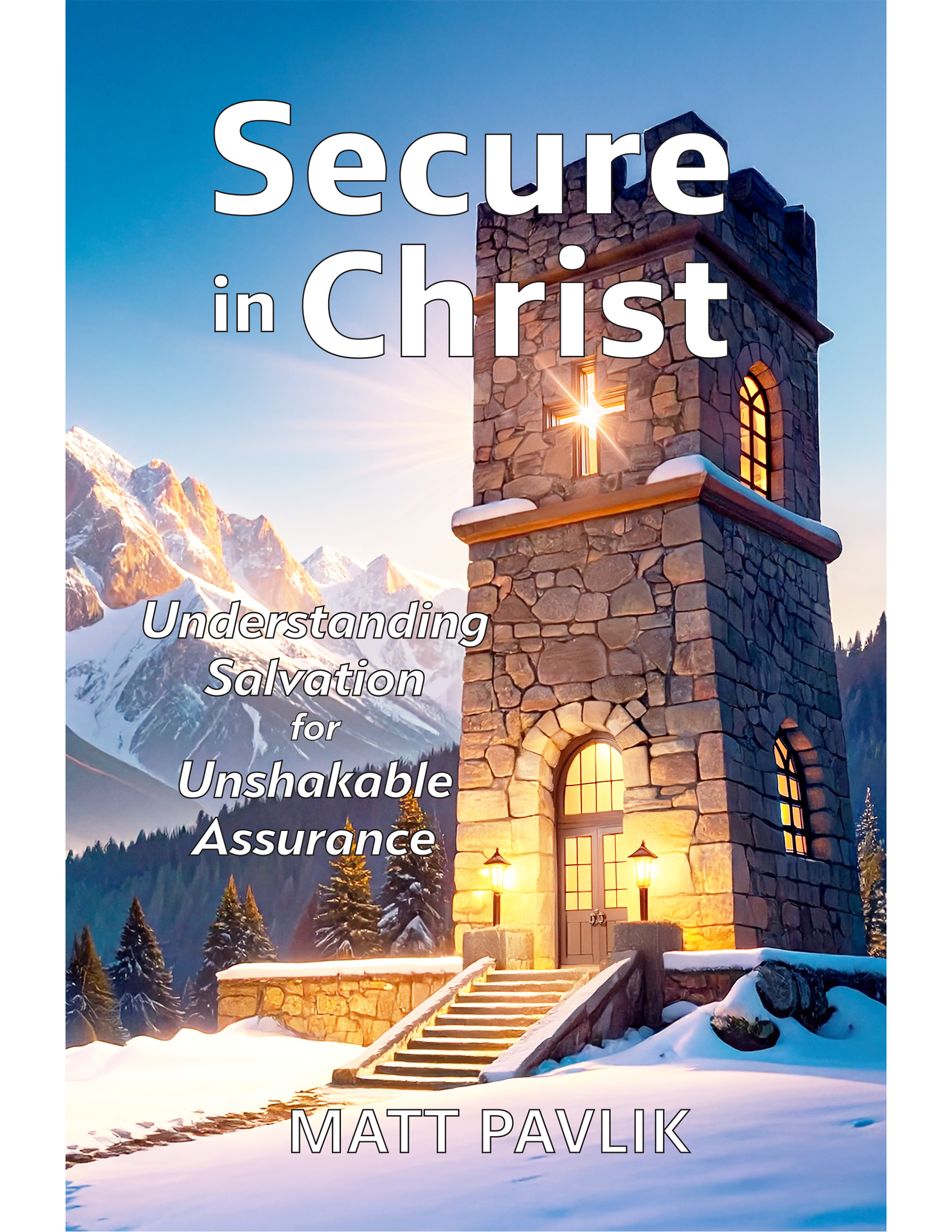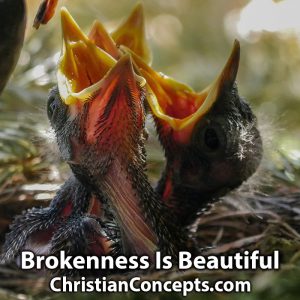When you can see your brokenness, you see yourself as you really are. It’s a wonderful moment of freedom from pretense. Seeing brokenness is simply another way to perceive what you are lacking.
The Lord is close to the brokenhearted and saves those who are crushed in spirit.
Psalm 34:18 NIV
Since God is the ultimate source of all we lack, we should welcome becoming aware of our brokenness. Why is it often so terrifying then? Believe it or not, it’s possible to fear something good. We crave consistency. After we start depending on something or someone, we don’t want it to go away.
If we lack something good we can fear both:
- that we’ll never receive what we need.
- that what we receive will inevitably be taken away.
Both fears are realistic, yet, painful. Both are ultimately rooted in doubting God is who He says He is. God gives good things to those who believe and ask.
And without faith it is impossible to please God, because anyone who comes to him must believe that he exists and that he rewards those who earnestly seek him.
If you, then, though you are evil, know how to give good gifts to your children, how much more will your Father in heaven give good gifts to those who ask him!
Hebrews 11:6; Matthew 7:11 NIV
Fear Makes Brokenness Ugly
So you can see how when fear is present, needs and desires can become completely overwhelming. If you’ve lived with deprivation for a long time, you know what I mean.
If your needs go unmet, you lose touch with what it’s like to have them met. Often this means living with an awareness that you don’t know what it is like to have them met. The longer this continues, the more difficult it is to trust it will ever be different. And, if it does happen, it will be doubly painful to lose it.
Anyone who experiences the trauma of abuse or neglect usually lives with a sense of deprivation. Abuse and neglect break trust which is essential if you want to risk the vulnerability required to have your needs met. Deprivation can be so painful that it is often more intense than the original trauma.
Coping Forever Prevents Healing
Depriving yourself for any length of time usually requires numbing your desires. If you can’t feel your hunger (emotional needs), it’s nearly impossible to over-eat (be self-centered). Unfortunately though, it is possible to under-eat (be deprived).
Cutting off your cravings for love and acceptance is a coping mechanism called dissociation. I believe dissociation to be a necessary coping to manage intense trauma. However, all coping is meant to be temporary until genuine healing and transformation are available and the person is ready.
How much a person relies on coping depends on at least two factors:
- The intensity of the pain experienced from trauma.
- The availability of a safe-enough relationship that promotes healing.
The intensity of the pain is mostly subjective. Some people can tolerate more pain than others. But the more the event is severe enough and prolonged enough, and if the person doesn’t have access to a caring person, the more extreme coping is needed.
One of the most intense efforts to cope with trauma is dissociation. When it becomes a mental health disorder it’s called dissociative-identity-disorder (DID).
For a person with DID, their self-awareness becomes divided into multiple parts in order to survive trauma. Therapy involves integrating the parts so that all parts receive needed healing. The end result is a person with a sense of being one integrated person (no longer needing “multiple parts”).
Another word for dissociated is broken. Everyone is broken. On this side of heaven, the opposite of being broken is being in denial. Meaning: if I can’t see my brokenness, I must be denying it.
Embrace your brokenness because it is what will drive you to God. He can help you become free from the trauma and deprivation you’ve been through.
Push Through Fear And Find Hope
Image by Gerhard G. from Pixabay
Matt Pavlik is a professional counselor, author, and devoted follower of Christ. With decades of experience in Christian counseling, he writes with theological depth and everyday clarity. His resources—centered on salvation, identity, marriage, and emotional healing—are anchored in Scripture and guide believers to discover the freedom of their identity in Christ and the security of their salvation in Him. He and his wife Georgette, married since 1999, live in Centerville, Ohio, and have four adult children.




[…] Read more about healing brokenness.Image by Olle August from Pixabay […]